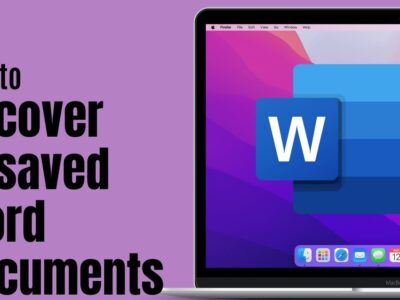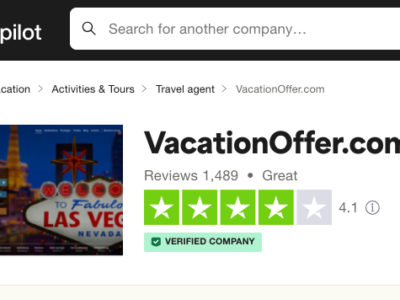Debt consolidation loan vs debt settlement: Weigh the pros & cons of each approach to crushing your debt without getting buried. Free yourself from the debt dungeon! Our in-depth guide unveils the hidden truths of consolidation & settlement, empowering you to choose the path to financial freedom.
Debt consolidation loan vs debt settlement aims to help you escape the clutches of debt, but they navigate this treacherous terrain in vastly different ways.
Choosing the right path depends on your financial compass and the unique landscape of your situation. So, let’s unpack the intricacies of each approach:
Debt Consolidation Loan
Imagine this: You’re juggling multiple debts, each creditor demanding attention like an overeager puppy. A debt consolidation loan acts as a financial superhero, swooping in to merge those debts into a single, manageable loan.
This simplifies your finances, reduces the number of pesky bills, and potentially lowers your interest rate, saving you money in the long run.
Benefits of Debt Consolidation Loans

- Simplicity: Manage one monthly payment instead of juggling multiple debts.
- Potential Interest Savings: Secure a lower interest rate than some of your existing debts, saving money in the long run.
- Credit Score Boost: Consistent on-time payments can improve your credit score over time.
- Debt Management: Organize and track your debt more efficiently.
How Does Debt Consolidation Loan Work?
Debt consolidation loans can be a powerful tool for streamlining your finances and tackling multiple debts, but understanding how they work is crucial before taking the plunge. Here’s a breakdown of the process:
1. Applying for the Loan:
- Shop Around: Compare rates and terms from different lenders like banks, credit unions, and online lenders.
- Credit Check: Your credit score will be a key factor in determining your eligibility and interest rate. Aim for good credit to secure the best deals.
- Loan Amount: Choose an amount sufficient to cover all your existing debts you want to consolidate.
2. Loan Approval:
- Pre-approval: Get a pre-approval estimate to understand your potential loan terms before applying.
- Formal Application: Once you find the right offer, submit a formal application with supporting documents.
- Approval and Funding: If approved, the loan funds will be disbursed, usually directly to your creditors to pay off your existing debts.
3. Repaying the Loan:
- One Payment: You’ll make one monthly payment to your new loan provider instead of multiple payments to different creditors.
- Fixed Interest Rates: Most consolidation loans have fixed interest rates, making your monthly payments predictable.
- Repayment Period: Choose a repayment term that fits your budget. Longer terms mean lower monthly payments but higher total interest paid.
Debt Consolidation Loan Pros:
- Credit Score Booster: Consistent on-time payments on your consolidation loan can give your credit score a superheroic leap, paving the way for better borrowing terms in the future.
- Debt Management Made Easy: No more juggling multiple bills! With one consolidated payment, you can say goodbye to the financial circus and focus on tackling your debt with laser focus.
- Interest Rate Robin Hood: By securing a lower interest rate on your consolidation loan, you can steal from the rich (high-interest debts) and give to the poor (your wallet).
Debt Consolidation Loan Cons:
- Creditworthiness Cape: Not everyone can don the creditworthy cape. You’ll likely need a good credit score to qualify for a favorable consolidation loan with a low interest rate.
- Full Debt Disclosure: There’s no escaping the debt gremlins entirely. You’ll still be responsible for repaying the full amount you owe, albeit with potentially less interest.
- Extended Repayment Web: While the monthly payments might be smaller, consolidating your debts could mean a longer repayment period, so you’ll be stuck in the debt web for a while longer.
Things to Consider:
- Qualifying for a favorable loan requires good credit.
- You’ll still owe the full amount of your debt, just under a different loan structure.
- Your repayment period might stretch longer, depending on the loan terms.
Remember, debt consolidation loans aren’t a magic solution. They work best when combined with responsible budgeting and financial discipline.
Do your research, compare offers, and choose the option that best fits your needs and financial situation.
Debt Consolidation Loans Alternatives
- Balance Transfer Credit Card: Consider transferring your high-interest debt to a credit card with a 0% introductory APR period, but beware of high transfer fees and potential interest rate hikes after the introductory period.
- Debt Management Plan (DMP): A non-profit credit counselor can help you negotiate lower interest rates and consolidate your debts into one monthly payment.
Debt Settlement

Picture this: You’re drowning in a sea of debt, and the creditors are like hungry sharks circling you. Debt settlement throws them a life raft in the form of a lump sum payment, significantly lower than the total you owe.
In exchange, they agree to forgive the remaining debt. It’s a risky approach, but for those struggling to stay afloat, it can be a lifesaver.
Benefits of Debt Settlement:
- Significant Debt Reduction: You can potentially reduce your overall debt burden considerably.
- Lifeline for the Struggling: If you’re facing severe financial hardship, debt settlement can offer a way out from under-crushing debt.
How Does Debt Settlement Work?
Debt settlement can be a risky but potentially beneficial approach to managing overwhelming debt, but understanding how it works is crucial before embarking on this journey. Here’s a breakdown:
1. Stop Payments and Save Up:
- Pause the Debt Avalanche: You stop making payments on your existing debts, allowing them to fall into delinquency. This can lead to late fees, collection calls, and potential lawsuits.
- The Negotiation Fund: You begin saving money in a dedicated account, accumulating funds for future settlements. This is the lifeblood of your debt settlement plan.
2. Negotiating with Creditors:
- Professional Help: Many individuals choose to work with debt settlement companies who negotiate with creditors on their behalf. These companies typically charge fees based on a percentage of the debt saved.
- Direct Negotiation: You can also negotiate directly with creditors, potentially saving on fees, but requiring time, effort, and negotiation skills.
- Lowball Offers: Debt settlement companies typically offer creditors a significantly reduced lump sum payment in exchange for settling the debt. Be prepared for resistance and lengthy negotiations.
3. Settling the Debt:
- Lump Sum Payment: If your offer is accepted, you use the saved-up funds to make a one-time payment to settle the debt for less than the original amount.
- Tax Implications: Settled debts may be considered taxable income, so consult with a tax professional before entering into a settlement agreement.
4. Rebuilding Credit:
- Credit Score Fallout: Be prepared for a significant and long-lasting credit score drop. Delinquencies and settlements will stay on your report for years, impacting your borrowing ability.
- Patience is Key: Rebuilding your credit score takes time and consistent responsible financial behavior.
Debt Settlement Pros:
- Debt Reduction Dynamite: This approach can significantly reduce your overall debt, like blasting away a mountain with dynamite. If you’re buried under a heavy pile of bills, it can offer a glimmer of hope.
- Last Resort Lifeline: If you’re facing financial hardship and traditional methods aren’t working, debt settlement can be a last resort option to keep the creditors at bay.
Debt Settlement Cons:
- Credit Score Kryptonite: Debt settlement is like kryptonite to your credit score. Expect a significant drop that can linger for several years, making borrowing more expensive in the future.
- Collection Calls from the Deep: While you negotiate, creditors might unleash a barrage of collection calls, turning your phone into a conduit for financial anxiety.
- Tax Torpedo: The forgiven debt might be considered taxable income, so be prepared for the taxman to come knocking.
- Scam Siren Song: The debt settlement industry is riddled with predatory practices and scams. Be wary of any promises that sound too good to be true, because they probably are.
Things to Consider:
- Credit Score Massacre: The negative impact on your credit score can be severe and long-lasting.
- Collection Cacophony: Expect persistent collection calls and the possibility of lawsuits.
- Tax Time Tango: Settled debts may be considered taxable income, adding an unexpected twist to your tax return.
- Scammer Sanctuary: The debt settlement industry is notorious for predatory practices and scams. Be extra cautious and do your research before diving in.
Debt settlement is a complex and risky strategy. Carefully weigh the pros and cons, research thoroughly, and consider alternative options before embarking on this path.
Remember, seeking professional financial advice from a credit counselor or financial advisor can be invaluable in navigating the debt labyrinth and choosing the best course of action for your unique situation.
Debt Settlement Alternatives
- Debt Consolidation Loan: If you have good credit, consider consolidating your debts into a single loan with a lower interest rate.
- Debt Management Plan (DMP): A non-profit credit counselor can help you negotiate lower interest rates and consolidate your debts into one monthly payment without the negative credit impact of debt settlement.
Choosing Your Weapon: Debt Consolidation Loan vs Debt Settlement

Ultimately, the choice between a debt consolidation loan and debt settlement depends on your specific situation and risk tolerance. Consider these factors before making a decision:
- Amount of Debt: Debt settlement is generally only recommended for large debts (usually exceeding $10,000).
- Financial Health: If you can afford the monthly payments, a consolidation loan might be a safer bet. Debt settlement is for those struggling financially.
- Credit Score: If your credit score is already good, consolidation can boost it further. But if it’s bad, the settlement will make it worse.
Remember:
- Seek Expert Guidance: Don’t navigate this maze alone! Consult a credit counselor or financial advisor for personalized advice tailored to your situation.
- Beware of Predatory Practices: Research any debt settlement company thoroughly before signing on the dotted line.
- Knowledge is Power: The more you understand your options and the potential consequences, the better equipped you’ll be to make an informed decision.
Choose wisely, and remember, with the right approach, you can conquer the debt maze and emerge financially stronger.
Conclusion:
Remember, there’s no one-size-fits-all solution. Consulting a credit counselor or financial advisor can help you navigate the debt labyrinth and choose the path that leads you to financial freedom.
I hope this expanded explanation sheds more light on the complex world of debt consolidation and settlement. Remember, knowledge is your weapon in this battle, so wield it wisely!
Discover more from Digital Wealth Guru
Subscribe to get the latest posts sent to your email.










Comments